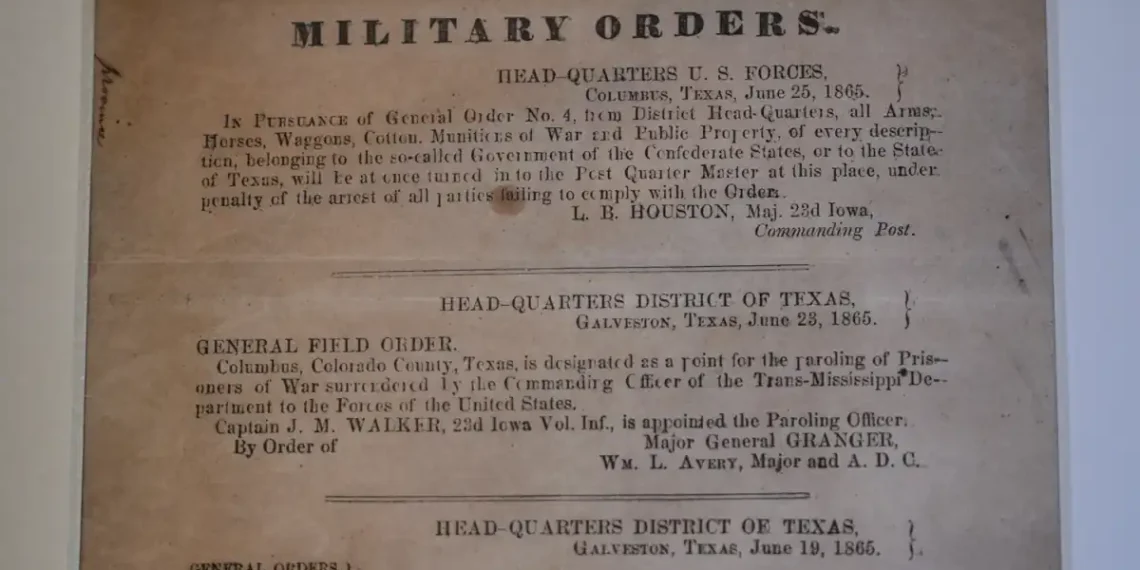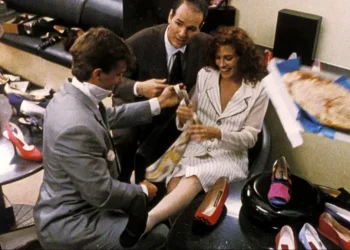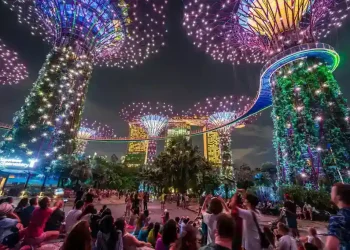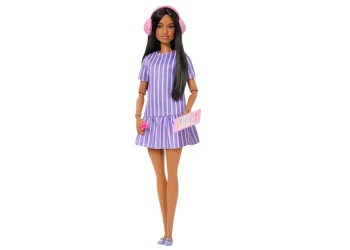Juneteenth: Your Essential Guide to Celebrating Freedom’s True Arrival
One hundred and sixty years ago, on June 19, 1865, enslaved people in Galveston, Texas, received life-changing news: they were finally free. This monumental moment, which came two years after President Abraham Lincoln’s Emancipation Proclamation and after the end of the Civil War, sparked what we now know as Juneteenth.
The holiday, a blend of “June” and “nineteenth,” has grown significantly over the decades. In 2021, President Joe Biden elevated its status, making it a federal holiday and extending its recognition far beyond the Black community.
This year marks the first Juneteenth under President Donald Trump’s second administration, which has controversially moved to ban diversity, equity, and inclusion (DEI) initiatives in the federal government. This has included removing Black American history content from federal websites and discouraging some federal agencies from recognizing other racial heritage celebrations.
Despite this political climate, many Americans anticipate observing Juneteenth with a plethora of street festivals, fairs, concerts, and other events planned throughout the week. But for some, particularly in workplaces, there might be a quiet question: Will my company still honor it?
“I don’t think anyone should be intimidated or obligated into not celebrating the day,” affirms Marc Morial, president and CEO of the National Urban League. “I’ve not heard of anyone being denied. I think it would be absolutely reprehensible.”
For those new to the holiday, or looking to deepen their understanding, you might be asking: Is there a “right” way to celebrate Juneteenth? Let’s dive in.
Understanding Juneteenth: Solemn Reflection or Joyful Celebration?
The beauty of Juneteenth lies in its flexibility. It can be both!
- A Celebration of Freedom: Juneteenth festivities are deeply rooted in cookouts and picnics. These outdoor gatherings were originally boisterous, revolutionary reunions for formerly enslaved families, many of whom had been separated. These were powerful moments, free from the oppressive “Black Codes” enforced in Confederate states that restricted Black Americans’ rights to vote, own property, or even gather for worship.
- A Day of Remembrance: For others, Juneteenth is a day for rest, reflection, and community engagement. This might mean participating in community service, attending educational panels to learn more about the history, or simply taking time off to honor the significance of the day.
As Marc Morial puts it, “The most important thing everyone should do is be able to quickly answer the question ‘What is Juneteenth?'”
Last year, the White House hosted a festive concert on the South Lawn for Juneteenth and Black Music Month, featuring Vice President Kamala Harris dancing with gospel singer Kirk Franklin. Plans for this year’s White House events or proclamations are still pending.
Never Celebrated Juneteenth Before? You’re Not Alone!
Dr. David Anderson, a Black pastor and CEO of Gracism Global (a consulting firm focused on bridging racial and cultural divides), admits he never celebrated Juneteenth growing up and only learned about it in his 30s. “I think many folks haven’t known about it — who are even my color as an African American male,” he notes. “Even if you heard about it and knew about it, you didn’t celebrate it. It was like just a part of history. It wasn’t a celebration of history.”
Historically, the farther one lived from Texas, the less likely they were to have regular, large Juneteenth celebrations. Even within the South, the specific day of celebration could vary based on when word of emancipation actually reached each state.
What Kind of Public Juneteenth Events Can You Expect?
A quick online search will reveal a diverse array of gatherings across the nation, varying in scope and tone:
- Carnival-esque Festivals: Many events feature food trucks, arts and crafts vendors, and vibrant parades. These festivals often include valuable community resources, offering information on healthcare, finance, and other local services.
- Cultural Showcases: Look for concerts, fashion shows, and other events designed to highlight Black creativity and artistry.
- Educational Panels: Many gatherings include discussions and presentations to deepen understanding of Juneteenth’s historical significance.
- National Parks: The National Park Service continues its tradition of offering free entry to all its sites on Juneteenth, encouraging public access and historical engagement.
Flags and Flavors: Juneteenth Traditions
- Symbolic Flags:
- Pan-African Flag (Red, Black, and Green): Historically displayed during both Black History Month and Juneteenth, this flag’s colors hold deep meaning: Red for the bloodshed and sacrifice of enslaved ancestors, Black for Black people, and Green for the richness of the African land.
- Juneteenth Flag (Red, White, and Blue): Created in 1997 by activist Ben Haith, this flag mirrors the American flag’s colors to signify that those freed are also Americans. The central white five-pointed star pays tribute to Juneteenth’s Texas birthplace, encircled by another white starry line representing the spreading of freedom.
- Red Foods and Barbecue: Barbecue is a staple, but the color red is a consistent theme in Juneteenth cuisine, symbolizing the bloodshed and sacrifice of enslaved ancestors. Common menu items include:
- Barbecued ribs or other red meats
- Watermelon
- Red velvet cake
- Red drinks like fruit punch and red Kool-Aid
While national chains have previously sold Juneteenth party supplies and merchandise, this year may see fewer in-store items, with more potentially available online. Morial expresses disappointment if companies are shying away due to political sensitivities, but he also sees an opportunity: “I would also encourage people to go online and look for an African American vendor,” he advises.
Do Non-Black People Celebrate Juneteenth? Absolutely!
Dr. Karida Brown, a sociology professor at Emory University specializing in race, strongly encourages non-Black individuals to embrace and recognize Juneteenth, emphasizing that it’s not just “Black history.”
“It absolutely is your history. It absolutely is a part of your experience,” Brown states. “Isn’t this all of our history? The good, the bad, the ugly, the story of emancipation and freedom for your Black brothers and sisters under the Constitution of the law.” There’s no need to feel awkward; embrace it as a shared American story of progress.
Other Names for Juneteenth & How to Greet Others
Over the decades, Juneteenth has also been known as Freedom Day, Emancipation Day, Black Fourth of July, and second Independence Day.
Dr. Brown highlights why some call it “second Independence Day”: “Because 1776, Fourth of July, where we’re celebrating freedom and liberty and all of that, that did not include my descendants. Black people in America were still enslaved. So that holiday always comes with a bittersweet tinge to it.”
As for greetings, it’s perfectly common to wish people a “Happy Juneteenth” or “Happy Teenth.” Comedian Alan Freeman, who organizes Juneteenth comedy shows, likens it to Christmas: “You know how at Christmas people will say ‘Merry Christmas’ to each other and not even know each other? You can get a ‘Merry Christmas’ from everybody. This is the same way.”
This article was rewritten by JournosNews.com based on verified reporting from trusted sources. The content has been independently reviewed, fact-checked, and edited for accuracy, neutrality, tone, and global readability in accordance with Google News and AdSense standards.
All opinions, quotes, or statements from contributors, experts, or sourced organizations do not necessarily reflect the views of JournosNews.com. JournosNews.com maintains full editorial independence from any external funders, sponsors, or organizations.
Stay informed with JournosNews.com — your trusted source for verified global reporting and in-depth analysis. Follow us on Google News, BlueSky, and X for real-time updates.













